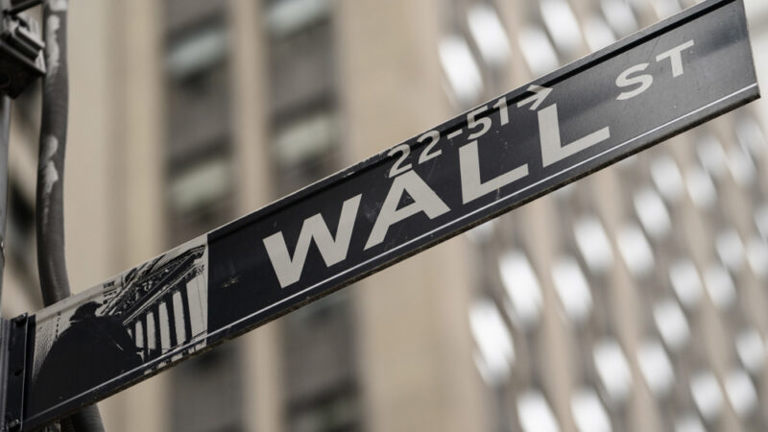JD Sports shares slump 13% on profit warning
A JD sports store seen in London famous Oxford street.
Sopa Images | Lightrocket | Getty Images
Shares of British sports retailer JD Sports fell 13% in opening trade after it warned that its annual profit would come in at the lower end of its guidance following a difficult October and subdued consumer spending.
The retailer, which sells major brands including Adidas and Nike in the U.K., Europe and the U.S., said sales had been particularly subdued in the U.S. in the lead up to the presidential election earlier this month.
“After a good start to the period, helped by strong back-to-school sales, we saw increased trading volatility in October, particularly in North America and the UK, reflecting elevated promotional activity and mild weather,” CEO Régis Schultz said.
“The trading environment remains volatile though and, following October trading, we now anticipate full year profit to be at the lower end of our guidance range,” he added,
— Karen Gilchrist
European markets open flat
European stocks opened flat Thursday as global market sentiment dipped.
The pan-European Stoxx 600 was marginally higher at 0.02% in opening trade, as major bourses and sectors diverged. Insurance stocks led gains, up 0.69%, while household goods dipped 0.62%.
The U.K.’s FTSE 100 index was 0.22% higher at 8,103, Germany’s DAX up 0.16% at 19,034, France’s CAC down 0.19% at 7,185 and Italy’s FTSE MIB 0.13% lower at 33,202.
— Karen Gilchrist
Britain’s ‘mini-budget’ disaster should serve as a warning to the U.S., bond strategists say
U.S. President-elect Donald Trump attends a viewing of the launch of the sixth test flight of the SpaceX Starship rocket, in Brownsville, Texas, U.S., November 19, 2024.
Brandon Bell | Via Reuters
Fears are mounting that the U.S. could soon experience its own version of Britain’s “mini-budget” crisis, with bond strategists warning that Donald Trump‘s return to the White House brings with it the specter of currency volatility and surging bond yields.
President-elect Trump has pledged to deliver a litany of pro-growth initiatives, including tax cuts, steep tariffs, and plans to roll back corporate regulation.
The former president’s economic agenda has ratcheted up concerns about a surge in consumer prices, which strategists say could spark significant shifts in bond yields and investor behavior.
Read the full story here.
— Sam Meredith
Asian chip stocks slump as Nvidia’s slowing revenue growth worries investors
Asian semiconductor-related stocks mostly slumped on Thursday after Nvidia reported an earnings forecast that failed to meet the lofty expectations of some investors.
While Nvidia’s third-quarter results exceeded analysts’ expectations and delivered a strong forecast for the current quarter, its shares still shed 2.5% in extended trading to roughly $142.20 apiece.
“No matter how good the company does … if the guide is anything less than the high end of the whisper, you will probably see some selling pressure,” Daniel Newman, CEO at the Futurum Group, told CNBC’s “Squawk Box Asia” following the report.
The sentiment has spilled over to Asia, with stocks tied to Nvidia suppliers as well as other chip companies mostly falling.
Read the full story here.
— Anniek Bao
Adani Group shares nosedive after chairman Gautam Adani charged with fraud in New York
India’s Adani Group saw shares of its companies plunge Thursday after its billionaire chairman Gautam Adani was indicted in a New York federal court over his alleged involvement in an extensive bribery and fraud operation.
The 62-year-old billionaire and the seven other defendants have been accused of paying over $250 million in bribes to Indian government officials to secure solar energy contracts that could generate more than $2 billion in profits.
The Indian group’s flagship firm Adani Enterprises fell 23%, while the company in the eye of the storm Adani Green Energy tanked 18.95%. Adani Energy fell 20%.
Adani Power lost 14.48%, Adani Port‘s share price dropped 20%, while the group’s retail arm Adani Wilmar shed 10%.
Read the full story here.
— Lee Ying Shan
CNBC Pro: HSBC names 3 ‘underappreciated’ Asian stocks to watch in 2025 — giving one 63% upside potential
Asian markets will look “very different” in 2025 in light of China’s new policy measures, the slowing Indian economy and Southeast Asian countries’ investments into new infrastructure, according to HSBC.
Still, several stocks can “benefit from these changes in Asia as they are best positioned to capture growth from these opportunities and that our analysts like from a bottom-up perspective,” the bank’s analysts noted.
“In highlighting these stocks, we decided to look outside of consensus ideas, which are generally well owned, and our aim is to highlight quality stocks that are relatively underappreciated,” they said, naming three of their top ideas.
CNBC Pro subscribers can read more here.
— Amala Balakrishner
‘Significant corrections’ followed stock markets this stretched in the past, Deutsche Bank says
The stock market has always pulled back when valuations are stretched as they are now, according to Deutsche Bank macro strategist Henry Allen in a note to clients this week.
“[T]urning points can happen quickly, and … when valuations are stretched to start with, there can be limited scope for further gains,” Allen noted. “[E]xamples of high returns through history have often been followed by sizeable reversals.”
The bank cited lofty current readings in the Cyclically Adjusted Price-to-Earnings (CAPE) ratio developed by economist Robert Shiller, arguing that “the CAPE ratio for the S&P 500 has only been higher on two other occasions in the last century” than it is today.
During the dot-com bubble of the late 1990s and the period before the Global Financial Crisis in 2008, “there was little scope for further gains since valuations were already so stretched to start with, and they were each followed by a significant correction,” Allen wrote. “Indeed, on both the occasions the CAPE ratio has got as high as it is today, there was then a significant correction.”
— Scott Schnipper
Fed Governor Bowman says inflation progress has ‘stalled’
Federal Reserve Governor Michelle Bowman said Wednesday that progress on bringing inflation back to the central bank’s goal has slowed.
“We have not yet met our inflation goal and, as I noted earlier, progress in lowering inflation appears to have stalled,” Bowman said in remarks in West Palm Beach, Florida. “I see greater risks to the price stability side of our mandate, especially while the labor market remains near full employment, but it is also possible that we could see a deterioration in labor market conditions.”
Recent data has indicated that the Fed has neared its 2% inflation target, though the all-items consumer price index nudged higher in October and the core rate indeed has held steady around 3.3% since August.
Inflation concerns caused Bowman to vote against the half-percentage-point interest rate cut in September, though she did vote for the quarter-point reduction earlier this month, which she would have preferred for the initial move. The policymaker said she approaches her role “in an independent way, relying on facts, analysis, my own experience and judgment,” and with the inflation mandate in mind.
“In some cases, this approach has led me to depart from the views of my colleagues,” she said.
— Jeff Cox
European markets: Here are the opening calls
European markets are expected to open higher Wednesday.
The U.K.’s FTSE 100 index is expected to open 4 points higher at 8,106, Germany’s DAX up 46 points at 19,108, France’s CAC up 23 points at 7,252 and Italy’s FTSE MIB up 118 points at 33,567, according to data from IG.
Earnings are set to come from Severn Trent and British Land. Data releases include U.K. inflation figures.
— Holly Ellyatt


